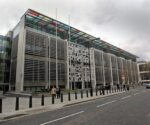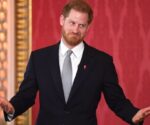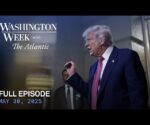Canadian PM Mark Carney: “Don’t Expect White Smoke” Out Of WH Meeting Tuesday
Canadian Prime Minister Mark Carney told reporters that he will meet with President Donald Trump in Washington, DC, on Tuesday, May 6, after a “very constructive phone call.” “Do not expect white smoke out of that meeting,” he said.
CARNEY: On Tuesday, I had a very constructive call with President Trump, and we agreed to meet next Tuesday in Washington. Our focus will be on both immediate trade pressures and the broader future economic and security relationship between our two sovereign nations. My government will fight to get the best deal for Canada. We will take all the time necessary, but not more, in order to do so. In parallel, we will strengthen our relationships with reliable trading partners and allies. Canada has what the world needs, and we uphold the values the world respects. REPORTER: What specifically do you want to get out of your first in-person meeting with President Trump? And will your focus be fully on trying to get the tariffs lifted? CARNEY: Thank you for the question. For the first meeting, as I mentioned in my remarks, and the President and I discussed when we had our constructive call, there are two sets of issues. There are the immediate tariffs, both sectoral and so-called reciprocal and fentanyl tariffs, and then there is the broader relationship. So, addressing both sets of issues-we’ll see how that progress goes. It’s important to get engaged immediately, which has always been my intention, has always been his intention. And I’m pleased to have the opportunity for quite a comprehensive set of meetings that will take place on Tuesday. REPORTER: How do you avoid an Oval Office ambush like we saw happen to President Zelensky? CARNEY: Look, I go there with the expectation of constructive, difficult, but constructive discussions. That’s the spirit of the conversations that the President and I had. You know, you go to these meetings well-prepared, understanding the objectives of your counterpart, and always acting in the best interest of Canada. And we’ll go from there. REPORTER: In your second call with the President, did Mr. Trump outright say or insinuate at any point that Canada should become the 51st state? CARNEY: He did not. REPORTER: Alright. We’ve heard Mr. Trump on April 23rd and his surrogates, throughout the final days of the campaign, reiterate the idea that they believe Canada should become the 51st state on the campaign trail. You said on multiple occasions that respect for Canada would be one of the key things in terms of having a meeting with him. Do you think, over the past few days, we have seen respect for Canada from the Trump administration? CARNEY: Look, I would-it’s always important to distinguish one from reality, the voluntary reality. Right? What someone wants and what is reality, and what the Canadian people clearly have stated, virtually without exception, is this will never, ever happen. And if any of the leaders of the party and their representatives would attest to that, I think the votes attest to it. I think the public dialogue attests to it as well. And we are, you know, we’re meeting as heads of our government to discuss that partnership. No, I’m not pretending those discussions will be easy. They won’t proceed in a straight line. There’ll be zigzags, ups and downs. But as I said in my remarks, I will fight for the best deal for Canada and only accept the best deal for Canada and take as much time as necessary. … REPORTER: To my colleagues’ point, the White House’s public position has continued to be that Canada should be the 51st state. You yourself have said that Donald Trump is trying to break Canada. Considering all that, how can you expect good-faith negotiations when you travel to Washington next week? CARNEY: Look, I think the-first, I’ve had the direct conversation with him on whatever day it was, Tuesday, I guess it was a couple of days ago. And we agreed to have those negotiations, a very clear discussion between us, as I said, very constructive. And I would say the time allocated to our meeting and the seniority of the-I mean, he’s the President, so that’s as senior as you get. But the other members of his administration who will be assisting at those meetings suggest the seriousness of the discussions. Again, we are not-do not expect white smoke out of that meeting. There will be white smoke, probably later, somewhere else in the world, this month. But do not expect that. So, that’s the first thing, just the level of, you know, the direct dialogue, the discussion, the level of people there. The second point, I’ll make it quickly. And thank you for restricting the question so others can get in. Is that he respects, as others who are good negotiators-and he’s one of the best negotiators-they respect strength. That’s why we’re building Canada strong. There’s lots of reasons to build Canada strong. But the point is, and I will make this point repeatedly, we have more than enough to do here at home. That point about we can give ourselves more than the Americans can take away is absolutely right. We can have a bigger boost to our economy, to incomes, to jobs, by focusing on building one Canadian economy, by building these nation-building projects, by focusing on getting productivity up, by reducing government waste, by driving investment in this country. And so that is a good in and of itself. We’re going to focus on that while we have these negotiations with the Americans. And if the negotiations with the Americans take longer, so be it. We’ve got more than enough to do here.









